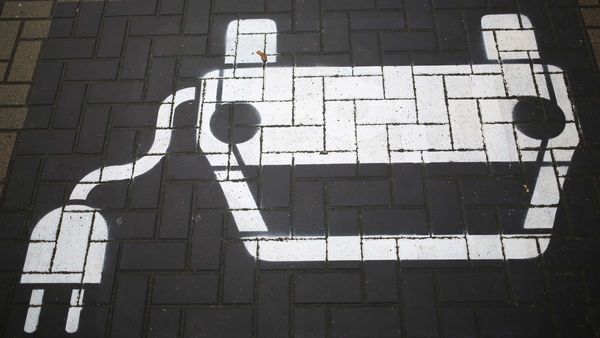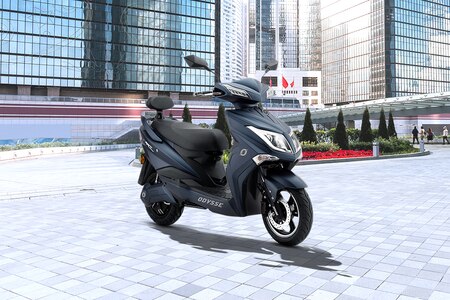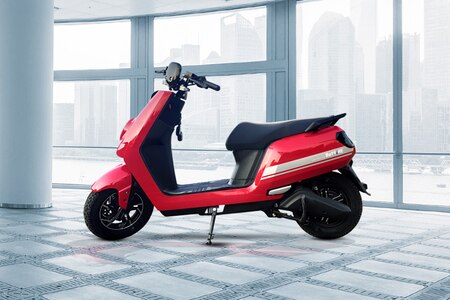OEMs stare at ₹3.5 lakh cr capex in 7 years to meet govt's EV target: Report
- Within the next 10 years, the government wants EVs to constitute 30 per cent of the overall vehicles on road in India.


Original equipment manufacturers (OEMs) will require a massive capex to the tune of around ₹3.5 lakh crore for electric vehicles (EVs) in the next five to seven years to meet the government's target of 30 per cent of the total vehicles on road being EVs by 2030, a report said on Tuesday.
However, it seems unlikely that OEMs will be able to incur such significant capital expenditure (capex) as the business environment has been badly hit due to the pandemic and larger OEMs are expected to take the inorganic growth path and acquire smaller, but specialised, players in the EV space, boutique advisory company Brickworks Analytics (BWA) said in the report.
Also check these Vehicles
OEMs currently have a capex of around ₹25,000 - 30,000 crore per year in terms of enhancing their capacity for model launches and upgradation of existing models, according to BWA.
Recently, the auto sector started showing gradual recovery signs after facing disruptions due to the lockdown, which is largely attributed to pent up demand which materialised particularly during the festival season, the report said.
However, what's much more worrisome is that the investments have taken a backseat, that too at a time when the government is increasingly supporting the adoption of EVs through various policy initiatives, with the vision of EVs constituting 30 per cent of the overall vehicles on road in India by 2030.
The total EV sales, across segments (two-wheelers, passengers vehicles and buses) stood at 1.56 lakh units last fiscal as compared to 1.30 lakh EVs sold in 2018-19, as per the report.
According to BWA, to boost the adoption and manufacturing of EVs by creating manufacturing capacities of a global scale and competitiveness, the firms' capex requirements are crucial at the initial stage.
Apart from multiple factors such as price, charging infrastructure, mass acceptability and evolving technology, setting-up manufacturing units for EVs is a significant requirement for the EV market, it said.
In line with rising customer demand, many auto manufacturing companies have already increased their capital expenditure to widen the scope of proposed EV businesses. However, the current crisis situation might lead them to rethink their proposed capital expenditure, said the report.
As per BWA, OEMs will have to incur capex to the tune of around ₹3.5 lakh crore exclusively for EVs in the next five to seven years to meet the government's vision.
However, it seems unlikely that OEMs will be able to incur such significant capex as the business environment has been badly hit due to the pandemic, it said.
Vehicle sales were already at their decadal low when the pandemic hit, and the sector is one of the worst hit during the pandemic as well.
The cash accruals of OEMs were badly impacted during FY20 and FY21, and will take more time to return to pre-Covid levels, it said, adding that these two years of continuous slowdown and the subsequent capex already incurred to meet the BS 6 emission norms will restrict firms from committing significant capex towards EVs.
However, BWA expects larger OEMs to take the inorganic growth path and acquire smaller, but specialised, players in the EV space, especially in the relatively lower value two-wheeler space, considering that this segment accounts for 80 per cent of the domestic auto sales.
The report also said that given the expectation of an about 10 per cent contraction in the domestic economy in full year FY21, demand for EVs is also likely to slow down.
Pitching for more government support, BWA said the Centre needs to come up with a scheme similar to the Technology Upgradation Fund Scheme (TUFS) in the textile sector to help OEMs upgrade towards EV technology.
The amended TUFS envisages interest reimbursement on the loans taken for technology upgradation and provides one-time capital investment subsidy of 10 to 15 per cent on eligible machines for different segments with a subsidy cap.
Such a subsidy, if proposed for the automobile sector, will take away some burden from the OEMs and help them achieve the EV vision, it added.








 64.8 kWh
64.8 kWh 418 Km
418 Km

















